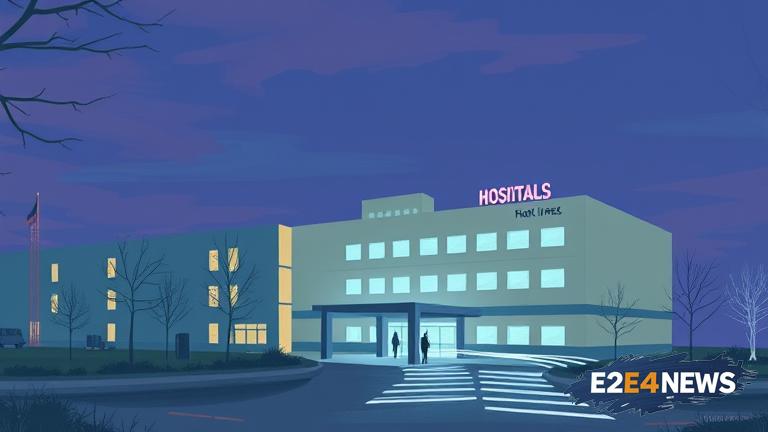The US healthcare system is on the verge of a significant shift as hospitals prepare for major Medicaid cuts. These cuts are expected to have far-reaching consequences, affecting not only the hospitals but also the patients who rely on Medicaid for their healthcare needs. Medicaid, a joint federal-state program, provides health coverage to millions of low-income Americans, including children, pregnant women, and people with disabilities. The impending cuts are a result of the expiration of the federal public health emergency declaration, which was put in place during the COVID-19 pandemic. During this time, the federal government increased Medicaid funding to states to help them cope with the surge in healthcare demands. However, with the emergency declaration set to expire, states will no longer receive this additional funding, leading to a significant reduction in Medicaid revenues. Hospitals are particularly concerned about the impact of these cuts, as they will be forced to absorb the losses. Many hospitals, especially those in rural areas, rely heavily on Medicaid funding to operate. The cuts could lead to reduced services, staff layoffs, and even hospital closures. This, in turn, could exacerbate the existing healthcare disparities in the US, particularly in underserved communities. The American Hospital Association has warned that the Medicaid cuts could have devastating consequences, including reduced access to care, increased uncompensated care costs, and decreased quality of care. The association has urged lawmakers to take immediate action to mitigate the effects of the cuts. Meanwhile, state governments are scrambling to find ways to offset the losses, including increasing taxes or reducing other healthcare programs. The Medicaid cuts have also sparked concerns about the potential impact on the broader healthcare system, including the private insurance market. As the US healthcare system continues to evolve, the Medicaid cuts serve as a reminder of the ongoing challenges faced by hospitals, healthcare providers, and patients. The situation highlights the need for sustainable and equitable healthcare funding solutions that prioritize the needs of vulnerable populations. Ultimately, the outcome of the Medicaid cuts will depend on the actions taken by lawmakers, state governments, and healthcare stakeholders to address the impending funding shortfall. The US healthcare system is at a critical juncture, and the decisions made in the coming months will have a lasting impact on the health and wellbeing of millions of Americans.
